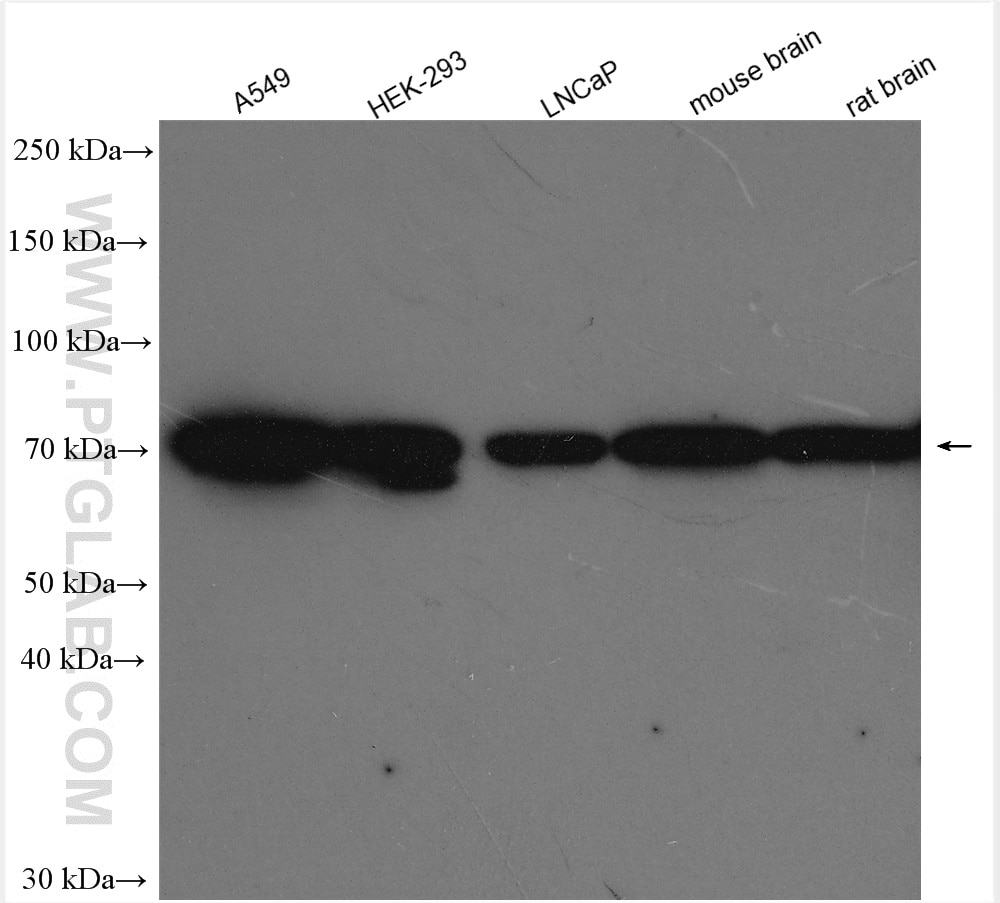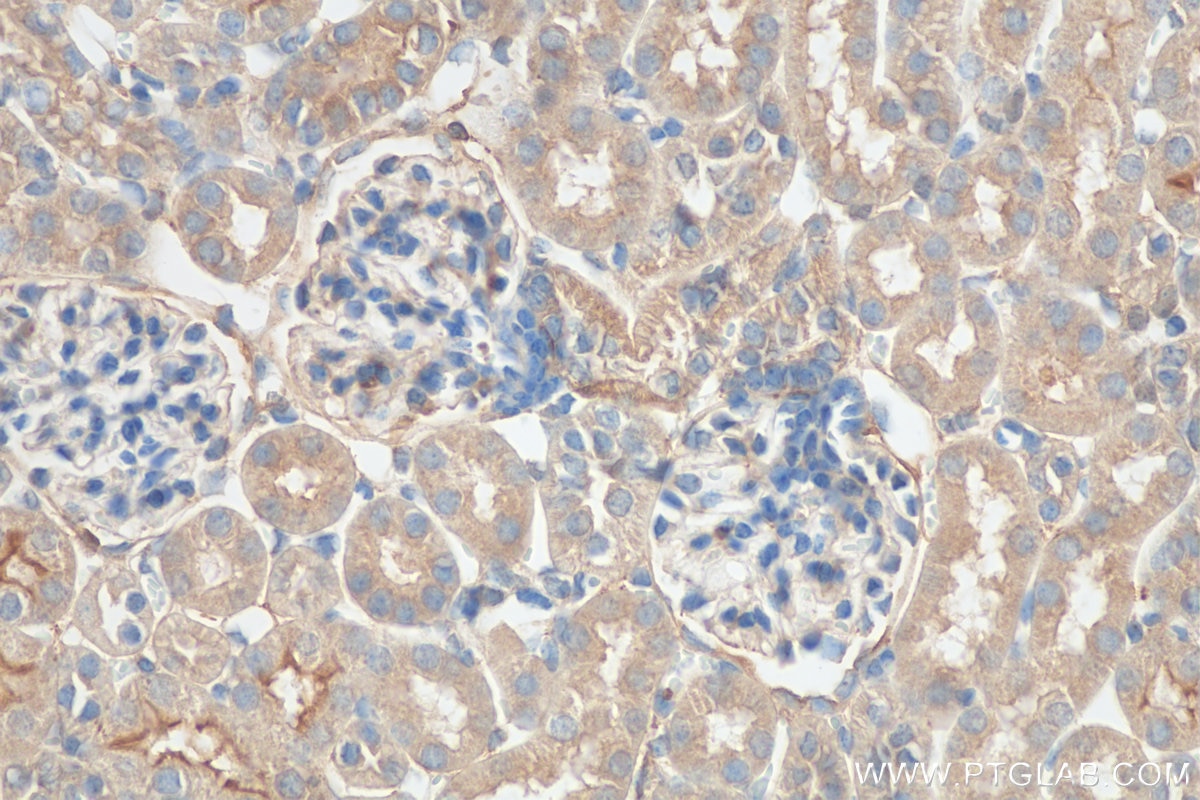Anticorps Polyclonal de lapin anti-IDUA
IDUA Polyclonal Antibody for IHC, WB, ELISA
Hôte / Isotype
Lapin / IgG
Réactivité testée
Humain, rat, souris
Applications
WB, IHC, ELISA
Conjugaison
Non conjugué
N° de cat : 30006-1-AP
Synonymes
Galerie de données de validation
Applications testées
| Résultats positifs en WB | cellules A549, cellules HEK-293, cellules LNCaP, tissu cérébral de rat, tissu cérébral de souris |
| Résultats positifs en IHC | tissu rénal de souris, il est suggéré de démasquer l'antigène avec un tampon de TE buffer pH 9.0; (*) À défaut, 'le démasquage de l'antigène peut être 'effectué avec un tampon citrate pH 6,0. |
Dilution recommandée
| Application | Dilution |
|---|---|
| Western Blot (WB) | WB : 1:500-1:3000 |
| Immunohistochimie (IHC) | IHC : 1:50-1:500 |
| It is recommended that this reagent should be titrated in each testing system to obtain optimal results. | |
| Sample-dependent, check data in validation data gallery | |
Informations sur le produit
30006-1-AP cible IDUA dans les applications de WB, IHC, ELISA et montre une réactivité avec des échantillons Humain, rat, souris
| Réactivité | Humain, rat, souris |
| Hôte / Isotype | Lapin / IgG |
| Clonalité | Polyclonal |
| Type | Anticorps |
| Immunogène | IDUA Protéine recombinante Ag30658 |
| Nom complet | iduronidase, alpha-L- |
| Masse moléculaire calculée | 73 kDa |
| Poids moléculaire observé | 73 kDa |
| Numéro d’acquisition GenBank | NM_000203 |
| Symbole du gène | IDUA |
| Identification du gène (NCBI) | 3425 |
| Conjugaison | Non conjugué |
| Forme | Liquide |
| Méthode de purification | Purification par affinité contre l'antigène |
| Tampon de stockage | PBS avec azoture de sodium à 0,02 % et glycérol à 50 % pH 7,3 |
| Conditions de stockage | Stocker à -20°C. Stable pendant un an après l'expédition. L'aliquotage n'est pas nécessaire pour le stockage à -20oC Les 20ul contiennent 0,1% de BSA. |
Informations générales
Iduronidase (L-iduronidase, alpha-L-iduronidase, laronidase) is an enzyme with the systematic name glycosaminoglycan alpha-L-iduronohydrolase. This enzyme catalyzes the hydrolysis of unsulfated alpha-L-iduronosidic linkages in dermatan sulfate. It is a glycoprotein enzyme found in the lysosomes of cells. It is involved in the degeneration of glycosaminoglycans such as dermatan sulfate and heparan sulfate. The enzyme acts by hydrolyzing the terminal alpha-L-iduronic acid residues of these molecules, degrading them (PMID: 4993544,30407). A deficiency in the IDUA protein is associated with mucopolysaccharidoses (MPS). MPS, a type of lysosomal storage disease, is typed I through VII. In this syndrome, glycosaminoglycans accumulate in the lysosomes and cause substantial disease in many different tissues of the body. IDUA mutations result in the MPS 1 phenotype, which is inherited in an autosomal recessive fashion. The defective alpha-L-iduronidase results in an accumulation of heparan and dermatan sulfate within phagocytes, endothelium, smooth muscle cells, neurons, and fibroblasts. Prenatal diagnosis of this enzyme deficiency is possible (PMID:8242073).
Protocole
| Product Specific Protocols | |
|---|---|
| WB protocol for IDUA antibody 30006-1-AP | Download protocol |
| IHC protocol for IDUA antibody 30006-1-AP | Download protocol |
| Standard Protocols | |
|---|---|
| Click here to view our Standard Protocols |



